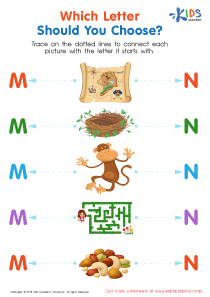Letter recognition Normal Lowercase/Small Letters Worksheets for Ages 5-6
10 filtered results
-
From - To
Enhance your child's reading skills with our engaging Letter Recognition Lowercase Worksheets, designed specifically for ages 5-6. These interactive printables help children master small letters through fun exercises that promote letter identification and recognition. With a variety of activities including tracing, matching, and coloring, kids will develop confidence in their literacy skills while having fun! Each worksheet is tailored to support early learners, fostering an enjoyable learning experience. Perfect for homeschooling or classroom use, our worksheets ensure that children build a solid foundation in the letters of the alphabet. Download now and watch your little ones flourish in their literacy journey!
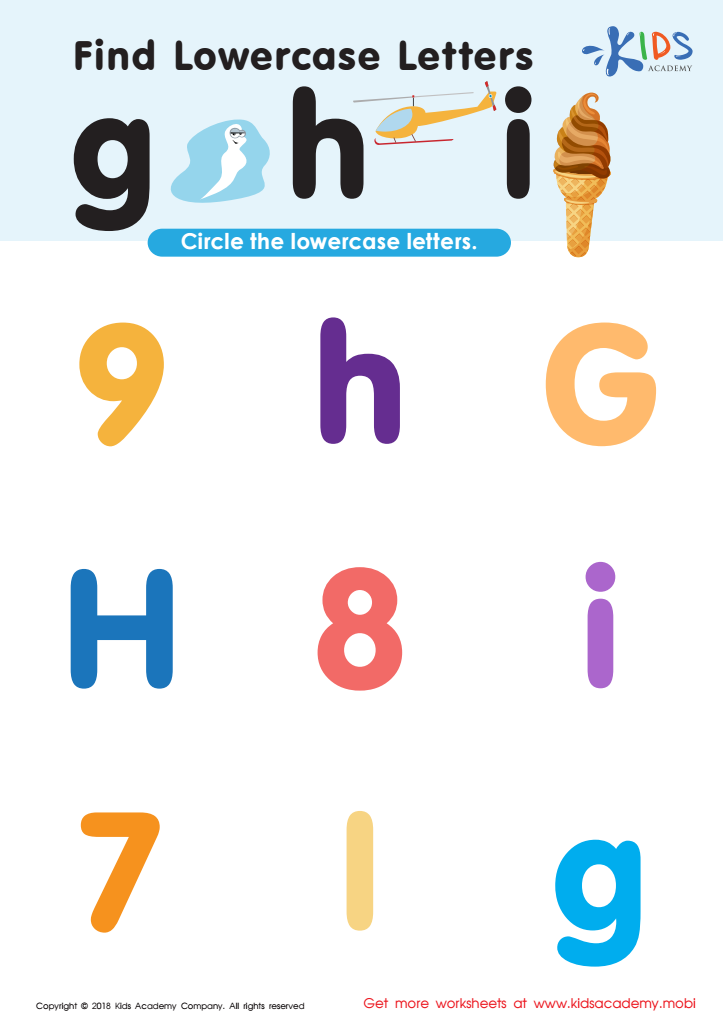

Find Lowercase Letters g h i Worksheet
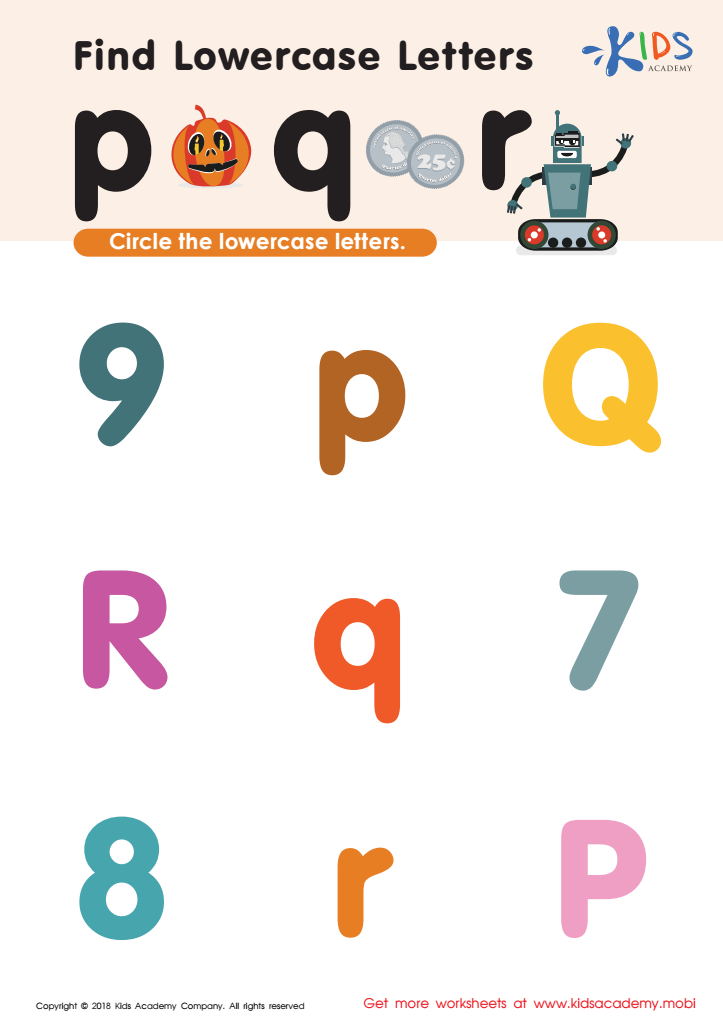

Find lowercase Letters p q r Worksheet
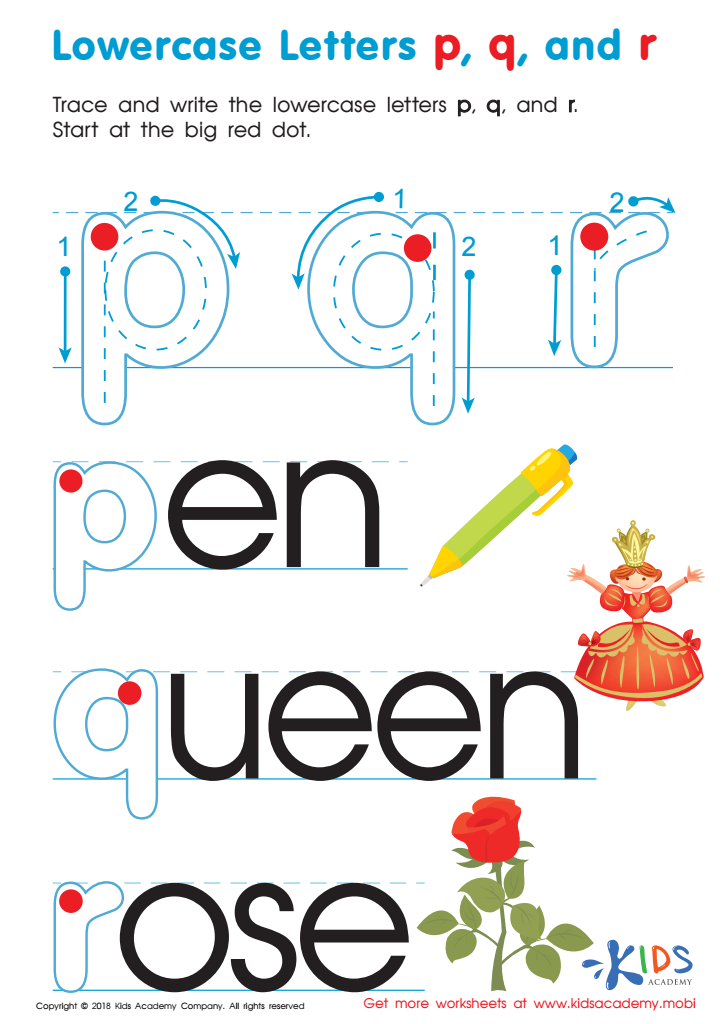

Lowercase Letters p q r Worksheet
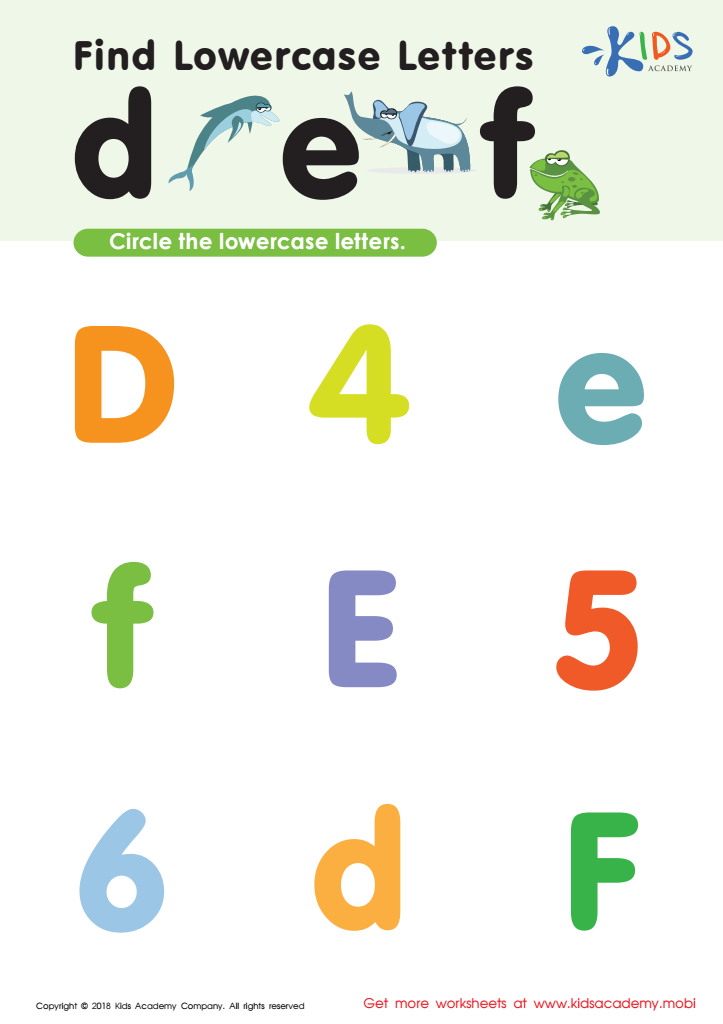

Find Lowercase Letters d e f Worksheet
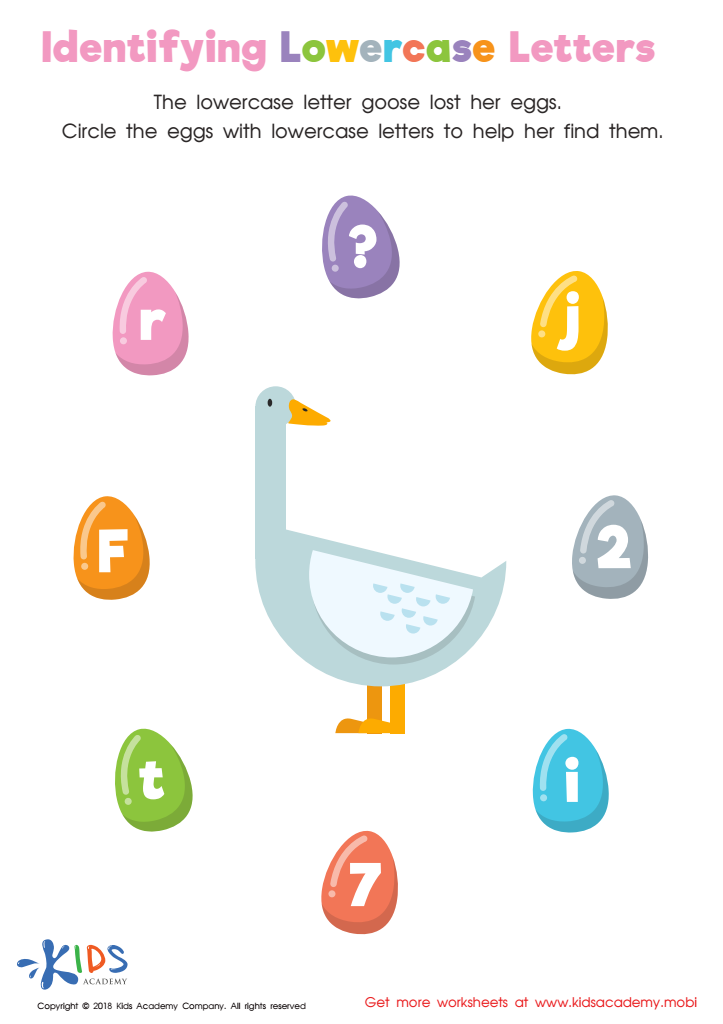

Identifying Lowercase Letters Worksheet
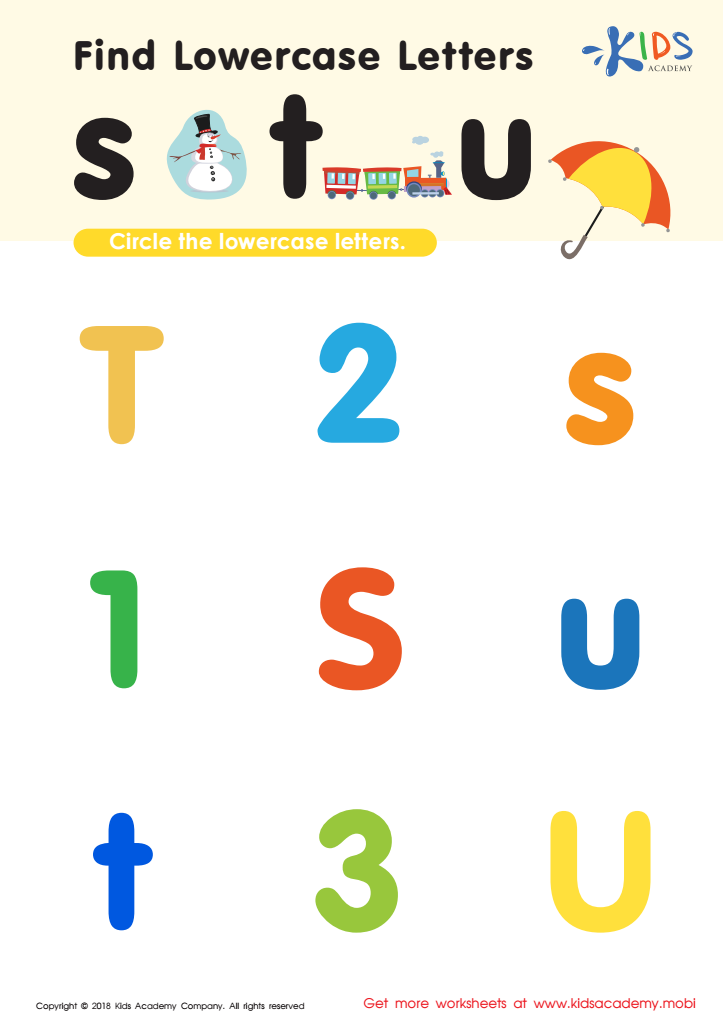

Find lowercase Letters s t u Worksheet
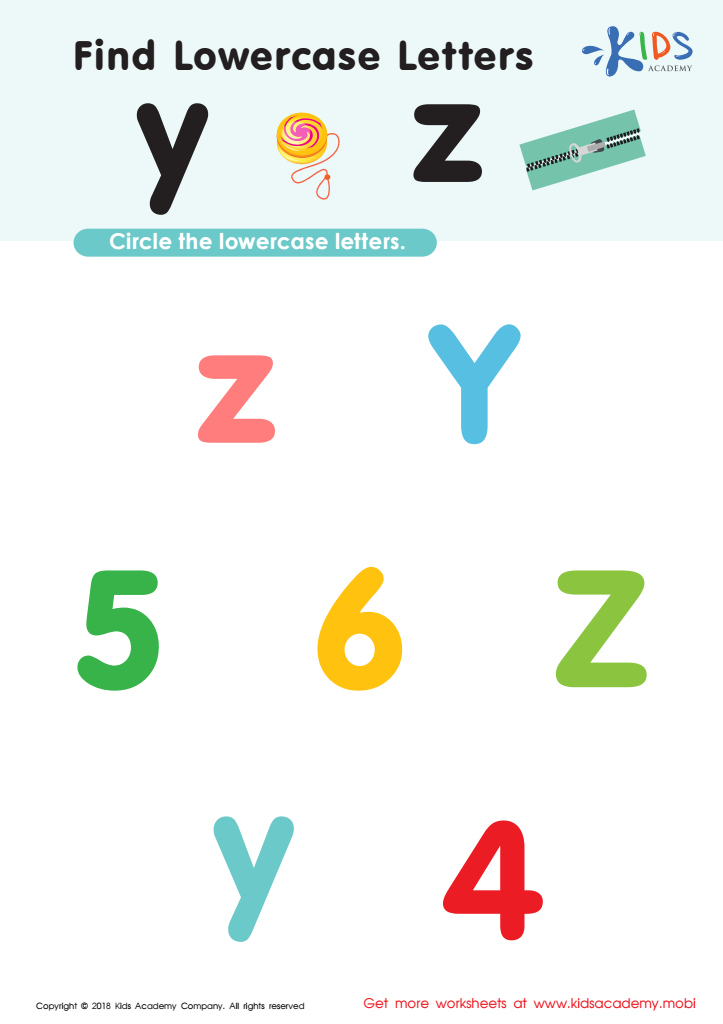

Find Lowercase Letters y z Worksheet
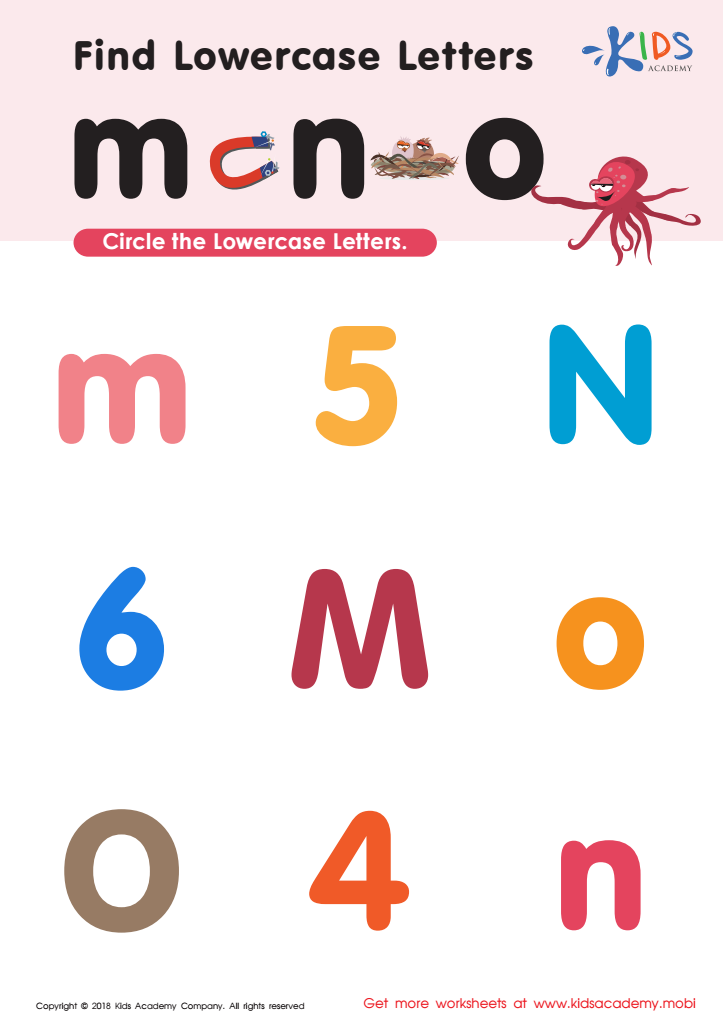

Find Lowercase Letters m n o Worksheet
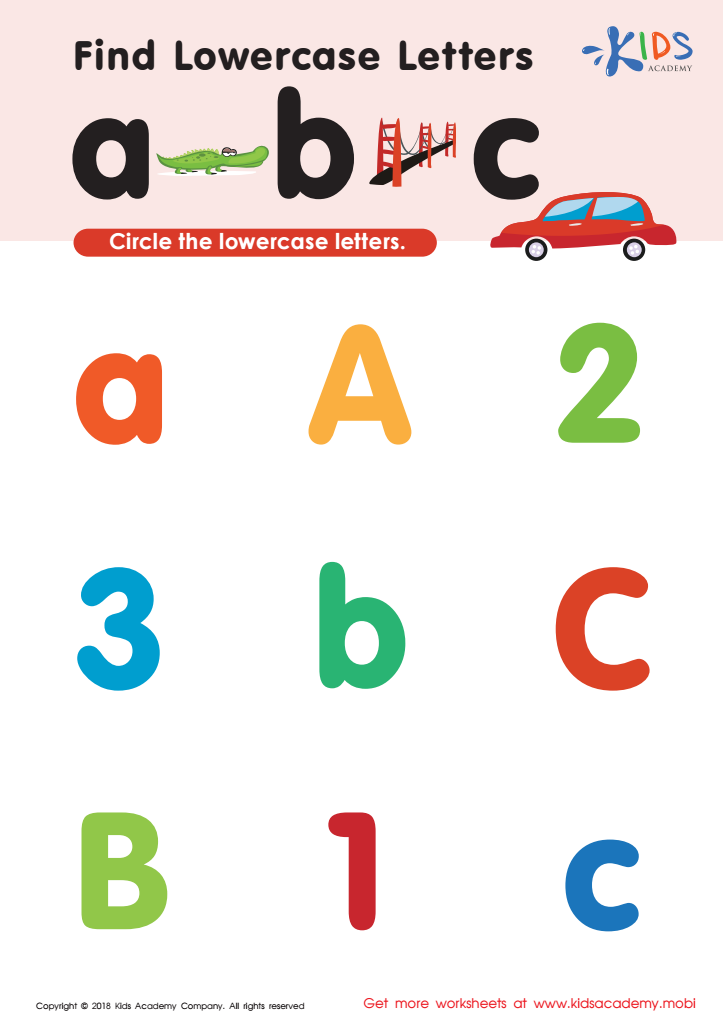

Find lowercase letters a b c Worksheet
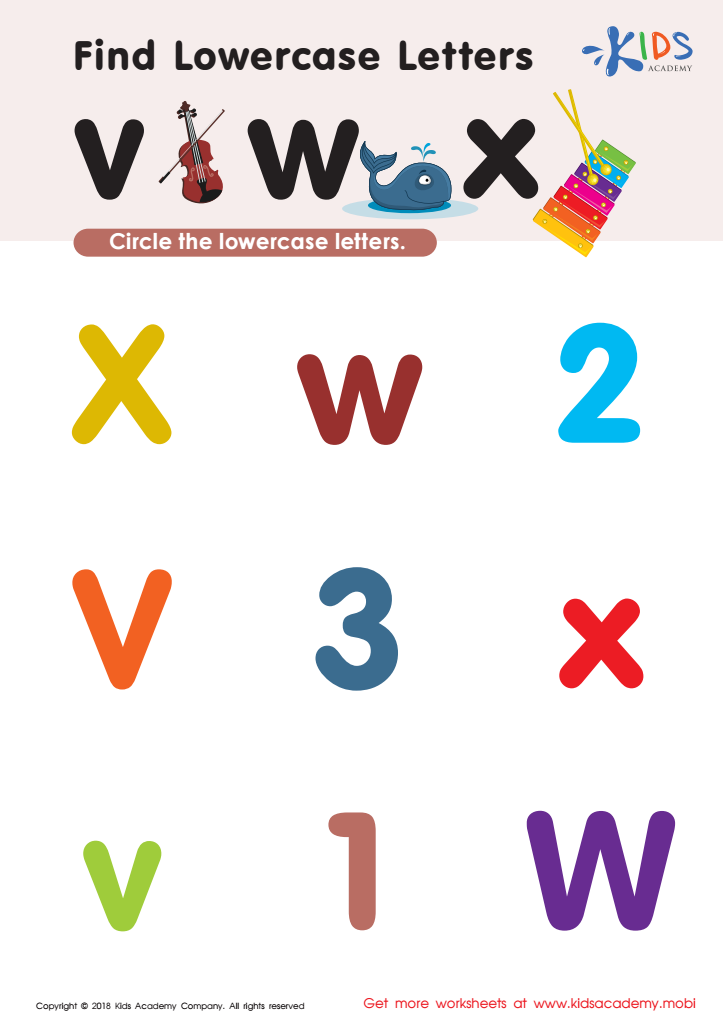

Find Lowercase Letters v w x Worksheet
Letter recognition, particularly of lowercase letters, is a foundational skill for young learners aged 5-6 and is crucial for their literacy development. For parents and teachers, understanding the significance of this skill is essential for fostering a child's future success in reading and writing.
First, lowercase letters are the most frequently used form in everyday reading and writing contexts. Many children's books, emails, and texts use lowercase letters predominantly. Familiarity with these letters will better prepare students to decode text they encounter, boosting their confidence and comprehension.
Moreover, mastering lowercase letters lays the groundwork for spelling and grammar. Children need to recognize letters not just in isolation but also in context, enabling them to understand word formation and structure. This skill will significantly enhance their ability to express themselves effectively in writing.
Engaging parents in activities that promote letter recognition—such as reading together, playing letter-based games, or involving children in labeling items at home—can further reinforce learning. Teachers can integrate hands-on activities, songs, and interactive storytelling to make learning engaging and meaningful.
In essence, prioritizing lowercase letter recognition is vital for comprehensive literacy, building a strong foundation for children's educational journeys.
 Assign to My Students
Assign to My Students




